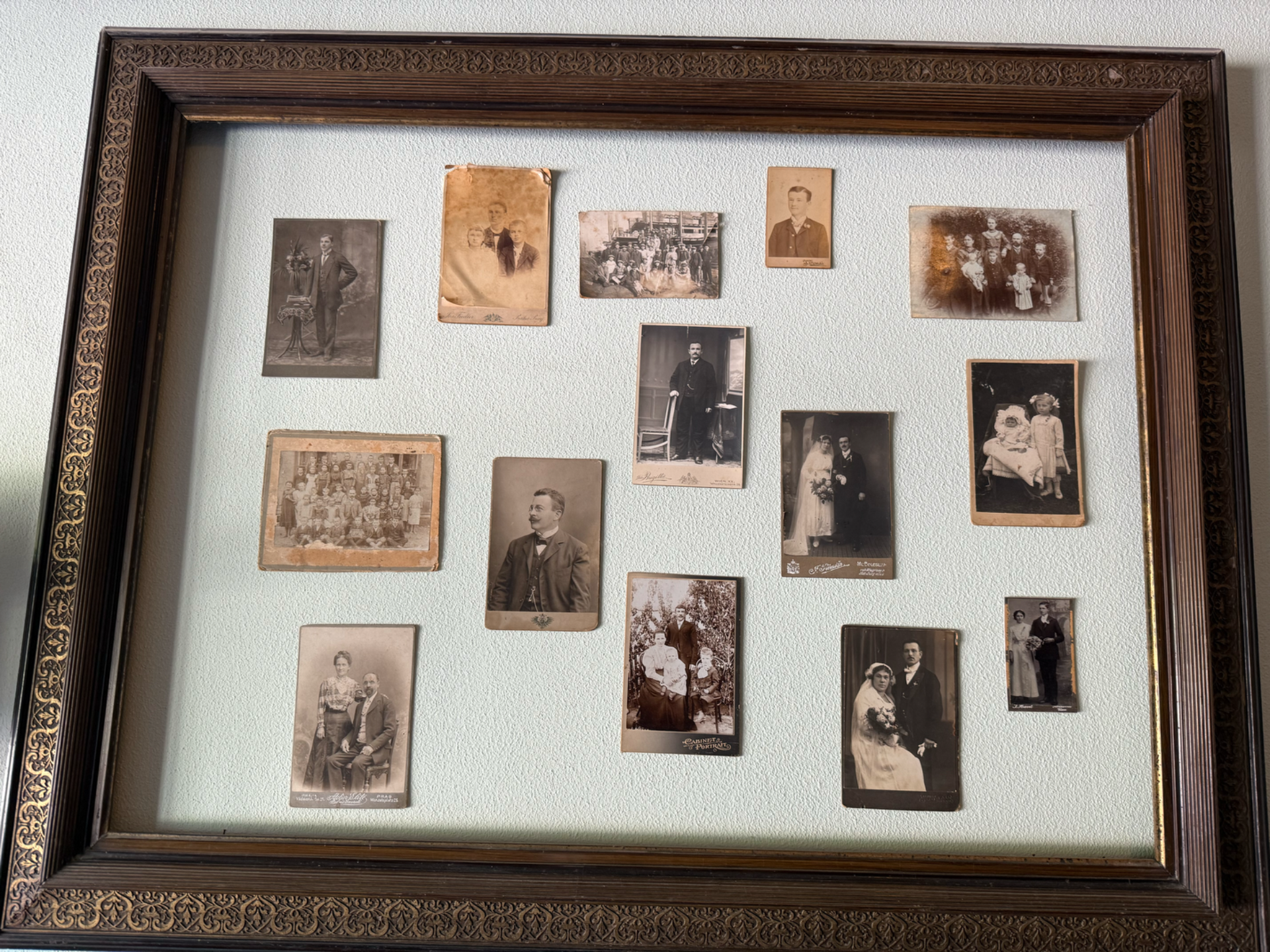How to Prove Czech Ancestry: A Step-by-Step Guide for Americans, Canadians, and British

If you have Czech roots, you may be eligible for Czech citizenship by descent - even if your family left generations ago. For many people in the USA, Canada, and the UK, proving Czech ancestry can unlock a European Union passport, a connection to heritage, and new opportunities for work, study, and travel.
In this guide, we explain what "proving Czech ancestry" really means, the documents you may need, and the common challenges applicants face.
Why Proving Czech Ancestry Matters
The Czech Republic allows citizenship to be passed down through parents, grandparents, and in some cases even further back - but you must prove the connection with official records.
Without documented proof, the Czech Citizenship Office cannot confirm your eligibility, even if your family is "definitely Czech" in family stories.
Step 1: Understand the Czech Citizenship by Descent Rules
While the law applies equally to everyone, the rules for eligibility depend on when your Czech ancestor was born and whether they ever lost their citizenship.
- Children of Czech citizens (born anywhere) usually qualify directly.
- Grandchildren can often qualify for Czech citizenship by descent, even if their parent or grandparent lost Czech citizenship.
- Great-grandchildren sometimes qualify, depending on historical laws in force when their ancestor emigrated.
Key point: Dates matter. For example, someone whose grandfather was born in Czechoslovakia in 1929 may have a very different legal path than someone whose grandfather was born in 1949.
Step 2: Identify Your Czech Ancestor
For most North American and UK applicants, the Czech ancestor is usually:
- A parent who emigrated after World War II
- A grandparent who left between 1918 and 1948
- In rare cases, a great-grandparent born before 1918 in territory that became Czechoslovakia
Tip: Start with the family member you are certain was born in Czech territory. Their birth record will be the foundation of your application.
Step 3: Gather Vital Records from Your Country
You'll need documents from your home country.
From the USA, Canada, or UK, these may include:
- Your own birth and marriage certificate
- Birth and marriage certificates for each generation linking you to your Czech ancestor
- Naturalization records (or proof of non-naturalization) for your ancestor in their new country
- Death certificates if applicable
Apostille is needed for documents from the USA, Canada, and the UK before the Czech authorities will accept them (See Step 5).
Step 4: Verify Citizenship Eligibility
If your parent or grandparent lost Czech citizenship - for example, by becoming a U.S. citizen or formally renouncing their Czech nationality - this can actually work in your favor. Under current Czech law, descendants can reclaim that lost citizenship.
We analyse your family's history and the timing of the loss to confirm that your application falls under the reclaim provision. This is a key part of many successful cases for clients from the USA, Canada, and the UK.
Fill out our Ancestry Citizenship Eligibility Check and we will check your eligibility for free.
Step 5: Legalization
All foreign documents must be legalized.
- Since Canada, the USA, and the UK are all parties to the Hague Apostille Convention, documents from these countries require an apostille from the competent authority before they can be used in the Czech Republic.
- There is no need to arrange translations yourself – we handle all official translations in the Czech Republic through court-certified translators to ensure they meet the Citizenship Office's requirements.
Now that you are ready, what to bear in mind: Even with all documents in place, there are a few important points that can influence how smoothly and quickly your application is processed. Being aware of them helps ensure the best possible outcome.
Common Challenges for Applicants from the USA, Canada, and UK
Completely changed names – for example, if an ancestor's Czech name was radically altered after immigration (e.g., Jan Novák becoming John Smith), additional documentation is required to prove the connection.
Unclear emigration timelines – without knowing exactly when and how an ancestor left Czechoslovakia, it can be difficult to confirm whether they retained Czech citizenship.
Gaps in family records abroad – missing marriage, naturalization, or death certificates from the USA, Canada, or UK can delay the process.
Legalization errors – documents sent without the correct apostille or with incomplete authentication are rejected by Czech authorities.
Why Professional Help Matters
Proving Czech ancestry is a legal process – not just a family history project. It requires deep knowledge of nationality law, official procedures, and direct experience with Czech authorities.
We are lawyers (attorneys-at-law) registered with the Czech Bar Association. This gives our clients a level of assurance and professionalism that goes beyond basic document assistance. As members of the Bar, we:
- Follow strict professional rules and a code of ethics
- Carry substantial professional liability insurance for your protection
- Have the legal authority to represent you before Czech authorities
- Provide legal advice tailored to your specific circumstances and based on current Czech nationality law
By working with a qualified lawyer, you benefit from expert legal analysis, precise document preparation, and secure handling of your case – all within a fully regulated, insured, and professional framework.
Our legal team will:
- Locate essential Czech records
- Interpret historical nationality laws to confirm eligibility
- Ensure all documents are properly translated and submitted
- Communicate directly with the Czech Citizenship Office on your behalf
We prepare your full application and submit it in the Czech Republic, keeping you informed at every stage – with the confidence that your case is handled by experienced legal professionals.
For many North Americans and Britons, the right paperwork can open the door to EU citizenship through Czech heritage. The process requires patience, legal knowledge, and careful document handling - but the reward is a passport that connects you to both your ancestry and new opportunities.
